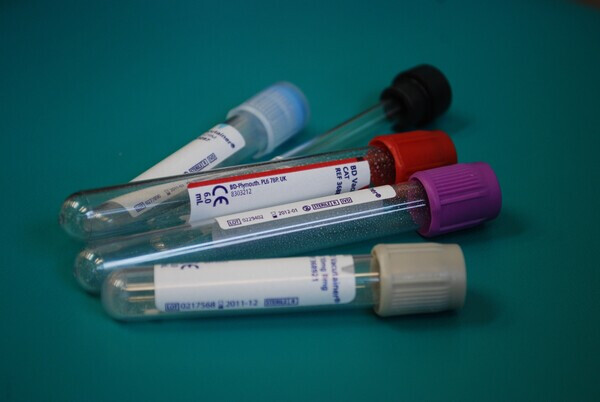
The burgeoning field of life sciences in China is acting as a significant catalyst for the nation's bioreagent market, a sector vital to the precision and efficacy of in vitro diagnostics and the advancement of biomedical research. Bioreagents, encompassing a diverse range of chemical substances and assays, are indispensable tools in biochemistry, molecular biology, and immunology, playing a pivotal role in early disease detection, vaccine innovation, and genetic analysis.
As China's life science technologies undergo a period of rapid evolution, the demand for high-quality bioreagents is experiencing sustained and robust growth. While global giants such as Thermo Fisher Scientific, Qiagen, and Bio-Rad Laboratories currently command a substantial share of the Chinese market, particularly in the molecular and protein-based reagent segments, there is increasing recognition of the potential for international competition, including from South Korean enterprises.
A recent report by the Korea Trade-Investment Promotion Agency (KOTRA) highlights the confluence of factors propelling the Chinese bioreagent market forward. The continuous advancements in cutting-edge biotechnologies, including gene editing (such as CRISPR-Cas9), single-cell sequencing, and proteomics, are fueling an escalating need for specialized bioreagents to support research and development efforts. This technological progress is directly translating into heightened demand for bioreagents in critical areas such as clinical diagnostics, precision medicine initiatives, and the burgeoning field of personalized therapeutics.
Furthermore, the Chinese government's strategic emphasis on bolstering its domestic biopharmaceutical industry through supportive policies is providing a significant tailwind to the bioreagent market. Coupled with demographic shifts, notably an aging population and a rising incidence of chronic diseases, the fundamental drivers for market expansion are firmly in place. The demand for sophisticated diagnostic tools, particularly in oncology and infectious disease management, is projected to witness substantial growth, further amplifying the need for high-performance bioreagents.
In response to these market dynamics, local Chinese bioreagent companies are intensifying their efforts to enhance their technological capabilities and elevate their production standards. A key strategy involves forging technological collaborations with established global players and strategically expanding their distribution networks to gain broader market access and technical expertise.
Currently, China exhibits a significant reliance on imported bioreagents, estimated at around 90% of the total market. Recognizing this dependence, Chinese biomedical enterprises are making concerted efforts to foster indigenous innovation and build core technology platforms. These platforms are crucial for supporting fundamental scientific research across various disciplines, including molecular biology, cell biology, immunology, developmental biology, and stem cell research. Moreover, they are essential for facilitating the discovery and development of novel pharmaceutical interventions.
Illustrative of this drive for self-reliance is Beijing-based Yichao Shenzhou, a company that has established a comprehensive suite of core technologies and five key technology platforms focused on protein and antibody-based bioreagent research and development. As of 2024, Yichao Shenzhou's extensive research portfolio includes over 9,300 recombinant proteins, approximately 15,000 antibodies, and more than 50,000 genes, demonstrating a significant commitment to advancing bioreagent innovation within China.
The increasing complexity and diversity of basic research and drug and vaccine development processes are also driving a trend towards the development of more customized, application-specific bioreagents and services. Shenzhen-based FAPON BIO exemplifies this trend. The company has developed advanced techniques for controlling the particle size of functional microspheres, which are microscopic polymer particles loaded with nanomaterials and used in targeted drug delivery. This precise control over particle size enhances the performance and reliability of their reagents, making them highly sought after by reagent manufacturers and pharmaceutical companies for applications in biomedicine, immunology, microbial isolation, biocatalysis, and other advanced biotechnological fields.
The rapid expansion of China's bioreagent industry is creating a significant appetite for the adoption of advanced overseas technologies. According to insights from Founder Securities, Chinese bioreagent companies are actively seeking to incorporate international expertise in areas such as protein and antibody production, the manufacturing of sophisticated reagents, and the implementation of robust quality control and detection methodologies.
The burgeoning field of mRNA vaccine research and development in China is particularly driving the demand for specialized enzyme raw materials. Chinese companies are actively pursuing various strategies, including technology licensing agreements, joint production ventures, and collaborative research and development projects, to acquire the necessary expertise and technologies in this critical area. A notable example is Shenzhen-based CanSino Biologics' partnership with AstraZeneca. Through a joint venture, the two companies are collaborating on the development of process improvement technologies for capping enzymes and polymerase raw materials, which are essential components in mRNA vaccine production.
KOTRA's analysis of the Chinese bioreagent market suggests a promising outlook for international collaboration. The agency highlights South Korea's existing competitive strengths in the bioreagent and broader biotechnology sectors, particularly in protein and antibody production, cell therapy and regenerative medicine technologies, and the development of high-value-added advanced reagents. Based on these strengths, KOTRA advises Korean companies to closely monitor the evolving trends in the Chinese market and proactively explore potential business opportunities through technological collaborations and strategic partnerships with local Chinese enterprises. The dynamic growth of the Chinese bioreagent market, coupled with its increasing demand for advanced technologies, presents a significant window of opportunity for international players with competitive offerings.
[Copyright (c) Global Economic Times. All Rights Reserved.]



























